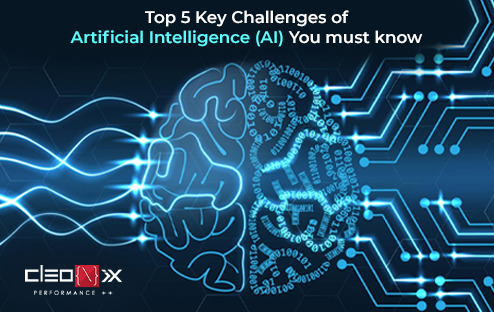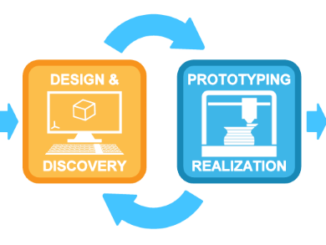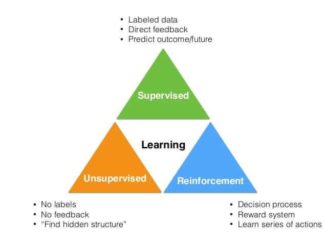
Artificial Intelligence (AI) has the potential to completely redesign the way in which businesses operate across functions, including customer service, marketing, and finance. There are numerous AI development companies who can help you in developing modern AI-powered solutions for your business. But as it is the case with other emerging technologies, there are challenges, and AI isn’t an exception. According to a new survey carried out by MIT-Boston Consulting Group, 85% of executives believe AI will transform business, but only 20% of companies are using it in some way, and just 5% make extensive use of it. The adoption of AI is very low because of the obstacles which come in the way of adopting the technology. Let’s take a look at the top five of them.
- Lack Of Organization & Ineffective Leadership: The hierarchy of a business can be quite complex. There are several heads of different departments who need to be on the same page in order to take mutual decisions for the betterment of the business. These heads have to drive their AI efforts together, at the same time and with the same effort level. Lack of proper organization and ineffective leadership of these heads lead to unclear, overlapping responsibilities, which ultimately hamper all your company’s investments in AI technology. There should be proper sync among all the departments in order to take decisions related to the adoption of AI.
- Not Picking The Fundamental Problems To Solve: Mostly an analytics team or many diffused analytics teams and innovators of your company work on a myriad of smaller projects on the fringes of the core business. But they ignore working on the fundamental ground in order to achieve the automation efficiency needed by the core business. You must concentrate on harnessing the power of AI solutions in the areas of your business priorities. For example, sectors of your business that generate significant revenues where automation can improve profit margins or reduce the percentage of errors and faults.
- Unexperienced & Untrained Professionals: In most of the companies, there is a shortage of AI brainpower and talent. In a survey carried out by PwC’s Digital IQ, only 20% of executives said their organizations had the skills necessary to succeed with AI. This lack of required experience and potential is one of the biggest challenges which comes in the way of using AI for enhancing the productivity of a business. Many organizations know their limits and no more than 20% think their own IT experts possess the expertise necessary to handle AI. The demand for machine learning skills is growing faster, but proper training isn’t easily available. In such a scenario, where AI talent is scarce but in very high demand, most of the companies are scouting innovation from third-party sources, such as incubators and accelerators, university labs, the open source community, and hackathons.
- Inaccessible Data and Privacy Protection: In order to train machine learning algorithms you need massive and clean data sets, with minimal biases. Most of this data isn’t ready for consumption because it is in unstructured form. This data contains sensitive information and is stored in a different processing system. As a result, most of the companies tend to invest heavily in creating the effective infrastructure to collect and store the data they generate and to recruit talent capable of performing encryption of this information so that to make it usable and productive.
- Trust & Believability Factor: It is very difficult to explain a deep learning algorithm in a simple way to a person who is not a programmer or engineer. With such a complexity those who may wish to bet on AI in order to harness new business opportunities may start disappearing. Most of the companies which are lagging behind in digital transformation, have to revolutionize their whole infrastructure in order to adopt AI in a meaningful way. The result of AI projects might come a little late as the data needs to be collected, consumed and digested before the experiment bears fruit. Most of the entrepreneurs lack the required degree of flexibility, resources, and bravery that is needed to invest in a large-scale machine learning project with no guarantee.
These are the five biggest challenges that you need to overcome if you want to start making effective use of the growing number of AI-powered tools that are available in the market. But these obstacles can’t stop AI to transform the way in which businesses function. In case you need to harness the benefits of AI technology in order to develop a solution to increase your productivity contact an experienced AI consulting company.
Proudly WWW.PONIREVO.COM



